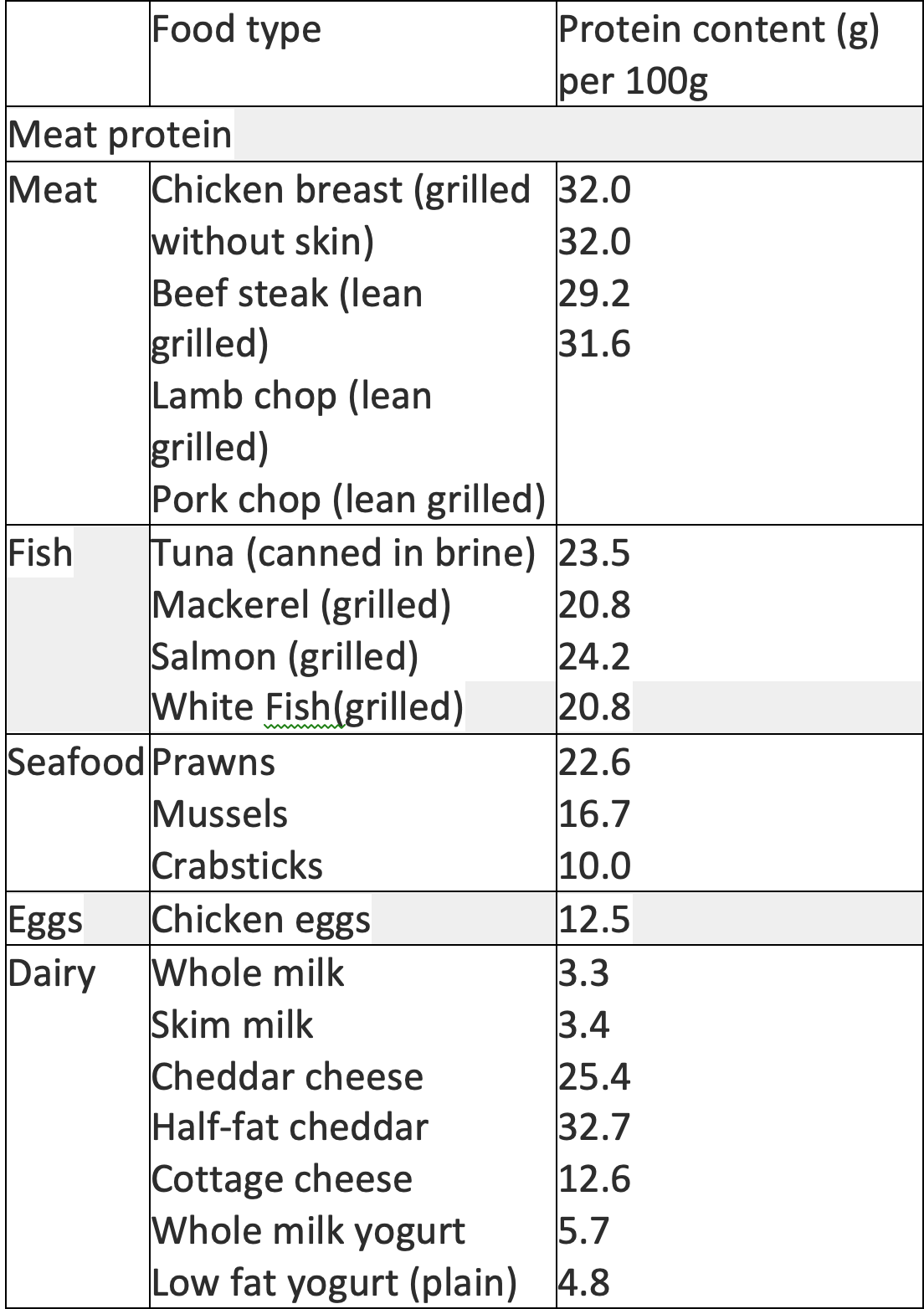Pete’s Blog – July 2019 - ‘Eat Well’ – Are you getting enough Protein in your daily nutrition plan?
This month I wanted to share with you some recent research into the important role played by protein foods in our daily nutrition requirements. This research, which was only recently published suggested that older adults may not be getting enough protein in their diet to meet their daily needs. Most of us know that Protein is one of the essential macronutrients we need to consume on a daily basis. Australian Dietary Guidelines have for years recommended that the average Australian adult should consume about 0.75g of Pure Protein per Kg of body weight per day. The guidelines also recommend that this needs to be increased slightly as we age but only up to about 1.0g per Kg per day.
A recent study published in the June edition of “Current Developments in Nutrition” journal suggests that older adults should aim to consume a minimum of 1.2g of high quality protein per Kg per day. It is likely that protein intake for older adults in this range can help maintain muscle mass and strength, which is vital for walking ability and reducing the risk of injury from falls.
Some key points to consider with regards to the importance of choosing good quality sources of protein:
Ø Protein requirements are increased for healthy weight loss – latest research supports an increase in protein for overweight and older Australians who are seeking to lose weight
Ø More protein at breakfast is needed to assist with appetite control – not only does this help to boost fat loss but could also help to reduce cravings later in the day
Ø At least 25g of protein is needed at each meal. Rather than waiting until the evening meal to get the majority of your protein needs, a more even distribution throughout the day helps hunger management and muscle metabolism. (25-30g protein per main meal is the threshold for such benefits)
Ø Protein-rich whole foods are the best choice – avoid junk foods and cereal-based dishes. Instead try to eat quality whole protein foods such as lean meat, poultry, eggs, legumes, nuts and dairy products.
Ø Protein balance helps craving control – a steady distribution of protein across meals helps to reduce hunger and cravings. Protein-rich foods tend to make people feel fuller than foods rich in carbohydrates or fat.
Adults and children should consume two to three servings of protein every day. If plant sources dominate, it is important to make sure that different types are consumed.
One typical portion size equates to:
100g of lean boneless meat (red and poultry)
140g of fish
2 medium eggs
3 tablespoons of seeds or nuts.
It is important to choose lower fat protein-rich foods, such as lean meats or reduced fat dairy products as some high protein foods can also be high in saturated fat. This will help minimise the risk of developing cardiovascular disease.



